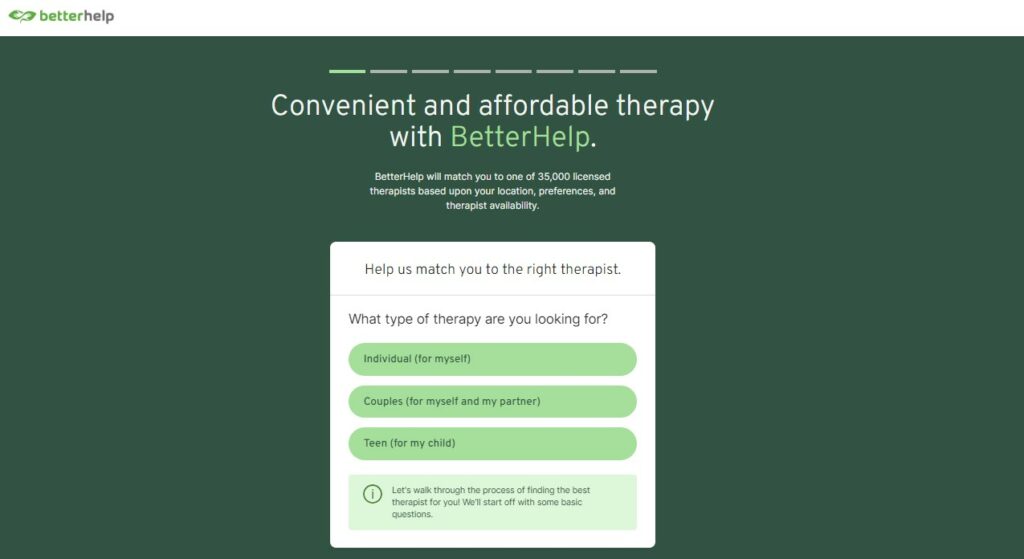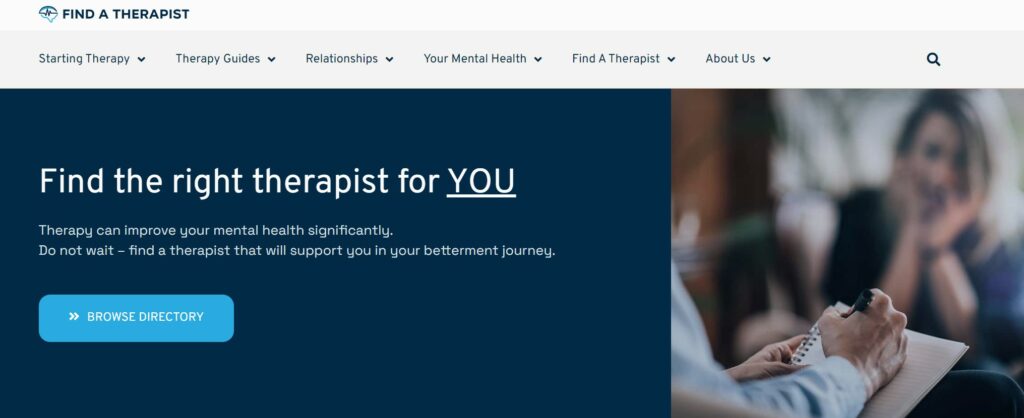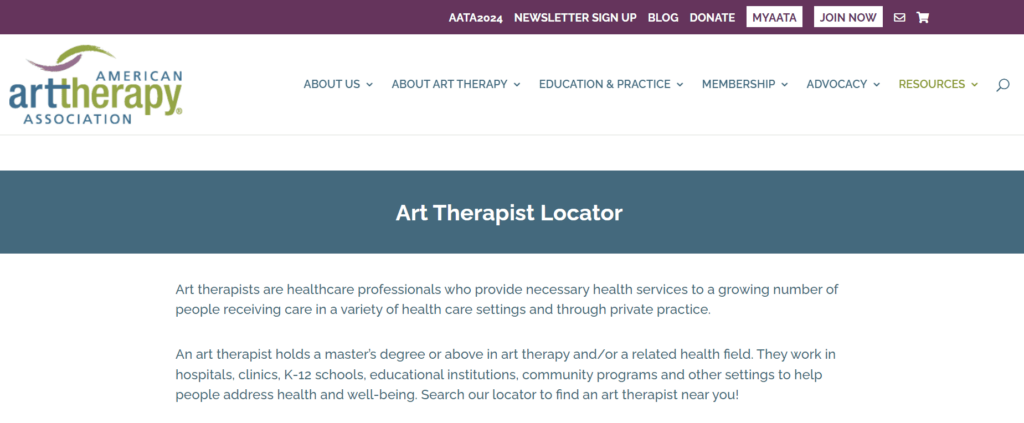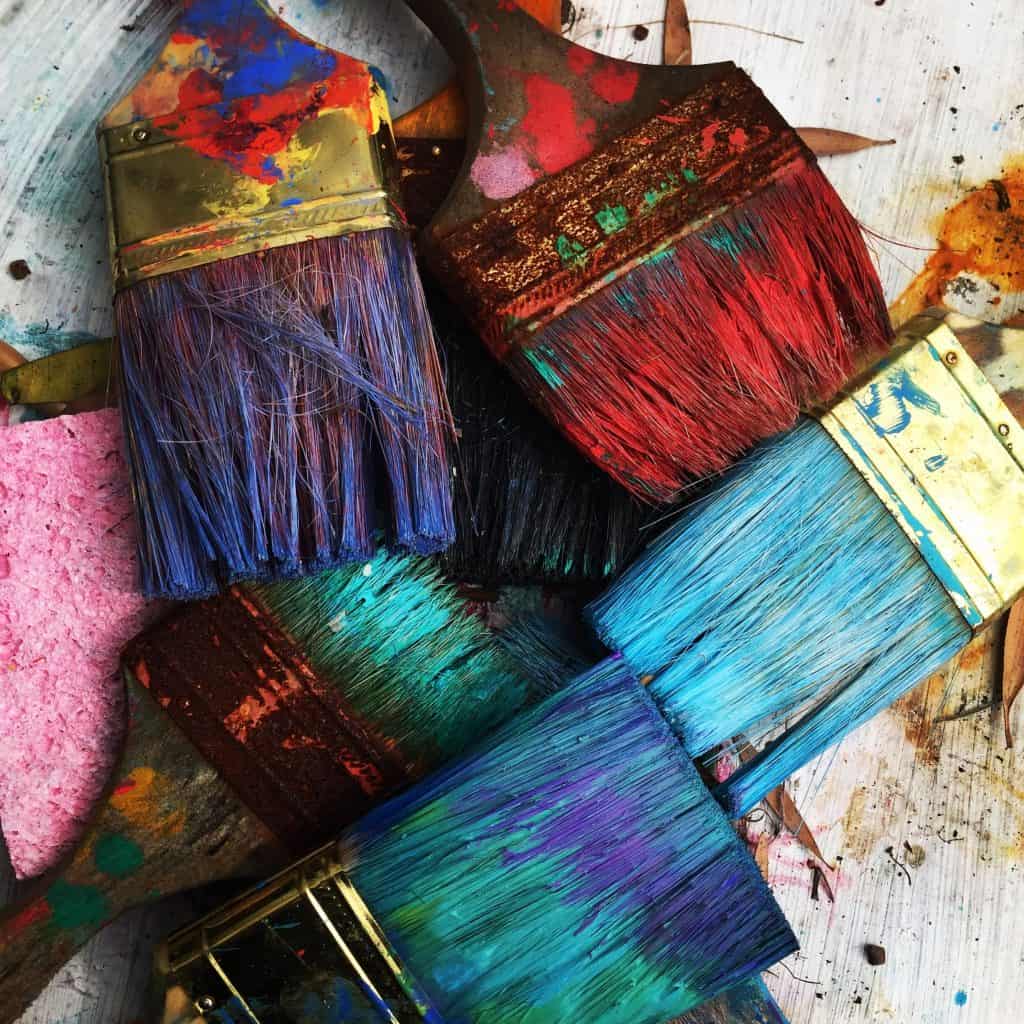Art therapists use creative methods of expression related to visual media to help people cope with depression, stress, and other mental illnesses.
Creative arts such as painting, sculpting, and photography can help improve your mental health by increasing self-expression, self-awareness, and emotional resilience.
In this guide, we’ll look at four places to find an art therapist, explain the basics of art therapy, and how to find a qualified art therapist.
Want to skip right to the suggestions for art therapists? Here are our 4 recommended therapy providers:
Art Therapists Near Me
Below, we’ve reviewed four of the best places to find a therapist who specializes in art therapy.
| Provider | Good For | Location | Pricing |
|---|---|---|---|
| BetterHelp | Quick match with the right therapist four you | Online therapy | $65 to $90 per week (billed every 4 weeks) |
| Find-a-therapist.com | Finding and contacting the right therapist for you | Online and in-person therapy | Varies depending on the counselor fee |
| American Art Therapy Association | Finding and contacting an art therapist for you | Online and in-person therapy in the U.S. | Varies depending on the counselor fee |
| Art Therapy Credentials Board | Finding and contacting a qualified art therapist for you | Online and in-person therapy in the U.S. | Varies depending on the counselor fee |
1. BetterHelp

Explore emotional well-being with BetterHelp – your partner in affordable online therapy. With 30,000+ licensed therapists and plans starting from only $65 per week, BetterHelp makes self-care accessible to all. Complete the questionnaire to match with the right therapist.
- Good for: Quick match with the right therapist four you.
- Location: Online therapy.
- Pricing: $65 to $90 per week (billed every 4 weeks).
- Features: iOS and Android app available, message your therapist anytime, live sessions are scheduled weekly and done via live chat, phone, or video call.
BetterHelp is an online platform that connects you with licensed therapists and mental health professionals, including art therapists. After filling out a short questionnaire, you will be matched with the right therapist for you.
Read our BetterHelp review here.
2. Find-a-therapist.com

- Good for: Finding and contacting the right therapist for you.
- Location: Online and in-person therapy.
- Pricing: Varies depending on the counselor fee.
- Features: Filter your search, find accessible and effective online and in-person therapy, find guides on different types of therapy.
Find-a-therapist.com is an online directory where individuals can personalize their search by type of therapy and other categories. There you can find therapists like May Izadi or Katlyn Maves who has experience in art therapy.
3. American Art Therapy Association

- Good for: Finding and contacting an art therapist for you.
- Location: Online and in-person therapy in the U.S.
- Pricing: Varies depending on the counselor fee.
- Features: Non-profit organization, allows to search by location, offers educational resources.
The American Art Therapy Association (AATA) is a professional organization where you can locate qualified art therapists in the U.S. The AATA establishes ethical guidelines, standards of practice, and professional development opportunities for art therapists across the United States.
4. Art Therapy Credentials Board

- Good for: Finding and contacting a qualified art therapist for you.
- Location: Online and in-person therapy in the U.S.
- Pricing: Varies depending on the counselor fee.
- Features: Database of over 5,000 credentialed art therapists, search by type of certificate, city, or state.
The Art Therapy Credentials Board (ATCB) is an organization that oversees the credentialing and certification of art therapists. There, you can search for an art therapist in your area using the search form.
How Does Art Therapy Work?

Human emotions are engraved both in both the conscious and subconscious. Sometimes, these emotions are too overwhelming to be expressed in words. Art therapy uses different aspects of creative arts in a therapeutic manner to activate sensory responses and explore emotions.
In this therapeutic approach, an art therapist may ask you to make art through forms such as drawing, painting, sculpting, scribbling, coloring, collaging, and many others. For instance, people with Autism Spectrum Disorder (ASD) may use these artistic media to communicate ideas and process memories that they are unable to express verbally.
Do You Need Art Training or Experience to Participate in This Type of Therapy?
You do not need artistic knowledge or experience to participate in art therapy.
The main focus of this type of therapy is expressing your feelings through creating art, rather than on the finished product. Irrespective of your training or command over the creative arts, your art therapist will guide you through the process of expressing yourself, and improving your mental health.
What Can Art Therapists Help With?
Art therapists can help you cope with a variety of psychological issues that may include, but are not limited to:
- Depression, anxiety, and stress.
- Emotional imbalances.
- Learning difficulties.
- Relationship issues.
- Trauma-related problems.
- Autism and ADHD.
- Alzheimer’s and dementia.
- Eating disorders.
- Addiction and substance abuse disorders.
- Overcoming grief, especially expressing difficult emotions.
How to Find an Art Therapist

While looking for an art therapist, you may like to consider the following aspects.
1. Registration Status of the Therapist
Currently, four abbreviations are used to define the registration status of an art therapist.
People who are an ATCS (Art Therapy Certified Supervisor), ATR-BC (Art Therapy Registered and Board Certified), or ATR (Registered Art Therapist) are registered art therapists, whereas an ATR-P (Provisionally Registered Art Therapist) isn’t a fully registered therapist. These practitioners work under the supervision of a credentialed professional to complete their post-graduate clinical hours.
2. Experience of the Therapist
One of the most important things to keep in mind while searching for an art therapist is their experience in the field. The more experience they have, the more likely the therapist has previously dealt with psychological issues similar to yours.
Secondly, you may also consider your therapist’s unique expertise and particular area of interest. For instance, an art therapist who has listed his particular experience in dealing with memory-related disorders would be a suitable choice for helping with dementia.
3. Education of the Art Therapist
A credentialed and registered art therapist must hold at least a Master’s degree to practice art therapy in the United States. Before choosing and contacting an art therapist, you should keep in mind the education level of your therapist.
4. Location of the Therapist
The location of your therapist and the distance you have to travel to attend a session may affect your commitment and adherence to the treatment. Often, people skip this aspect while choosing a therapist and later on, they tend to attend only two to three sessions. Therefore, it’s important to consider how convenient it will be to access your art therapy sessions.
Furthermore, some people have preferences in a therapist, such as wanting to see someone of a specific gender, or wanting to find an affordable art therapist. In this case, you may want to be more selective when choosing someone to work with.
Conclusion
Art therapy allows you to express your complicated emotions through visual media. Using the above-mentioned resources, you can easily search and find well-educated and experienced art therapists in the US.
Also, it’s important to remember that art therapy is very accessible – you do not need to be an expert at creative arts to see success with this method of therapy.





